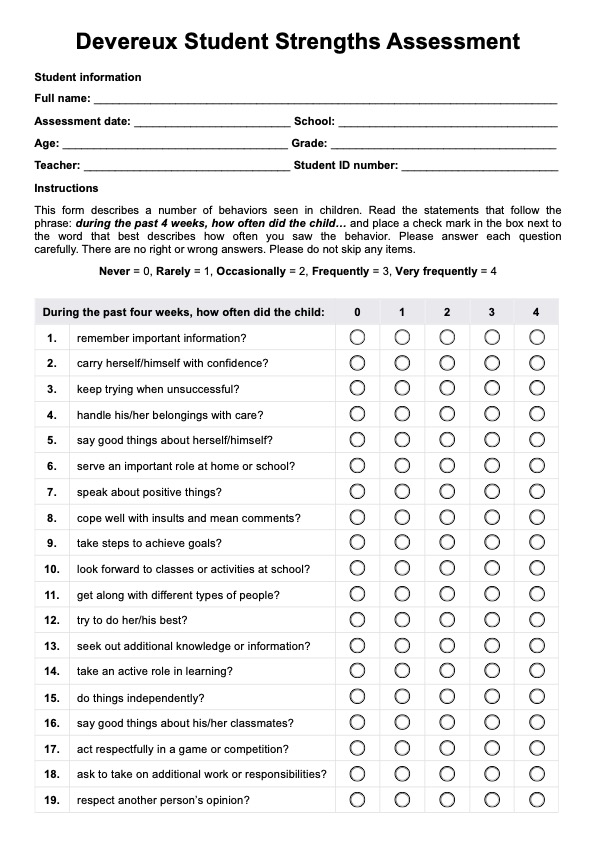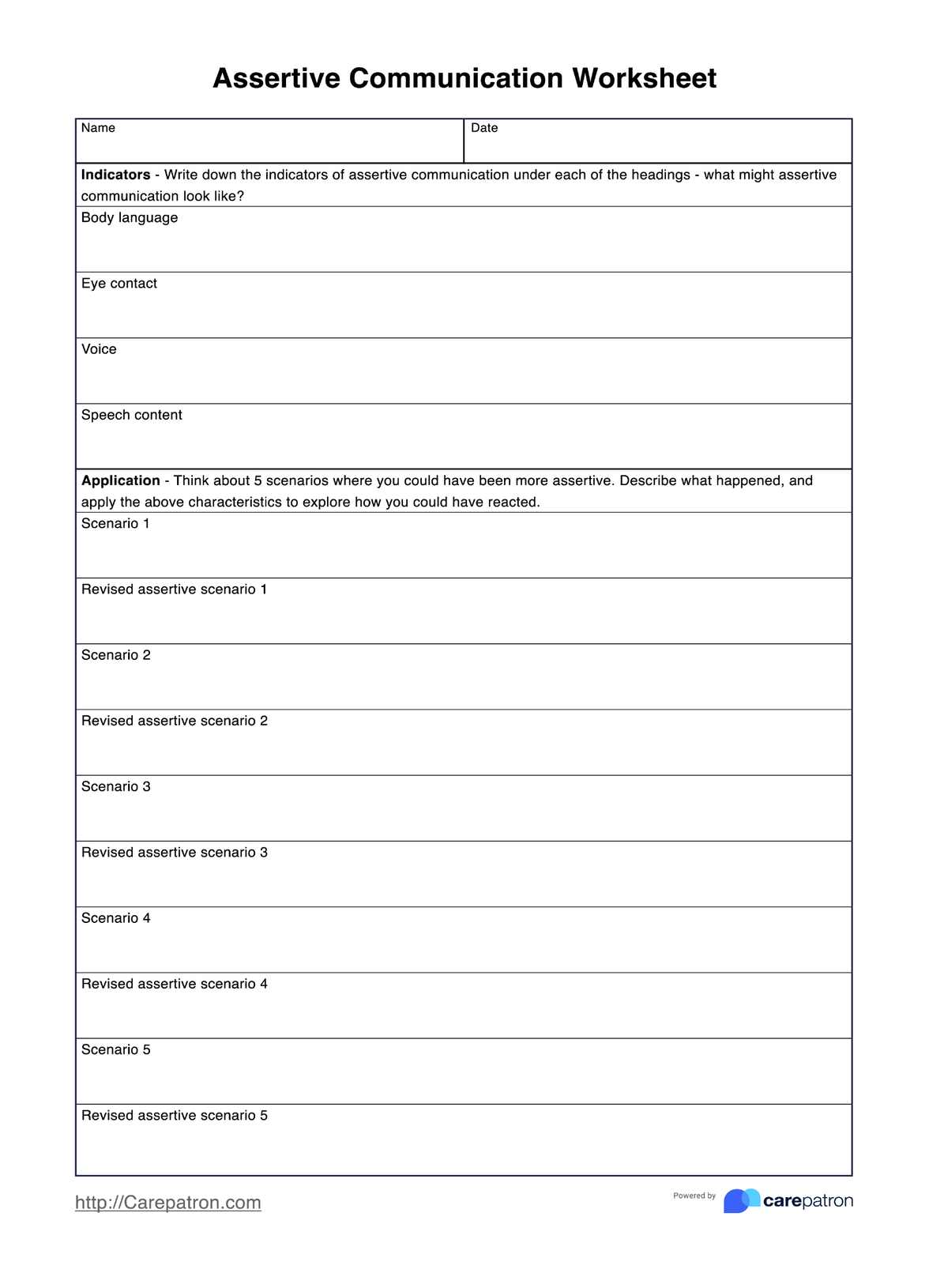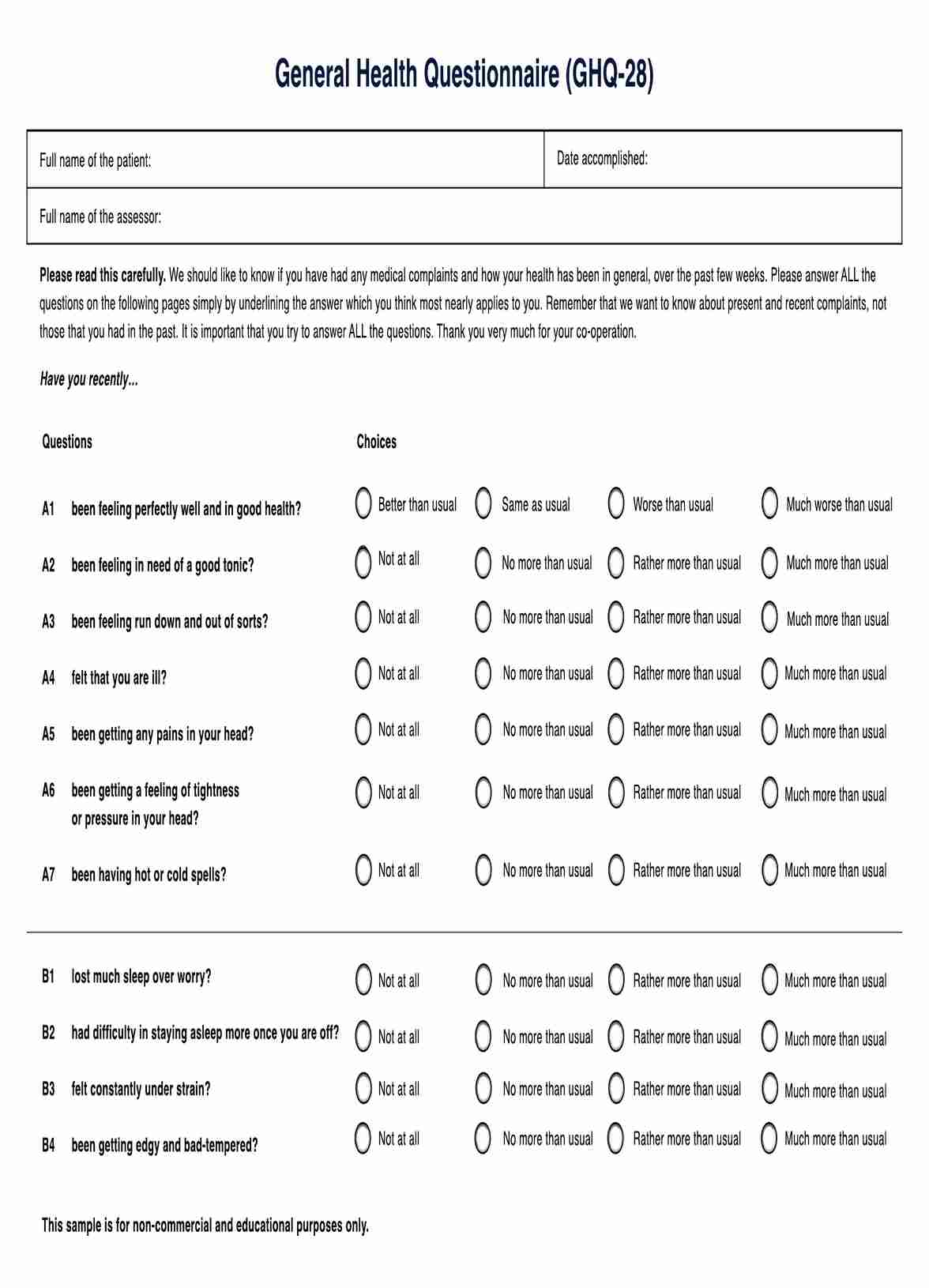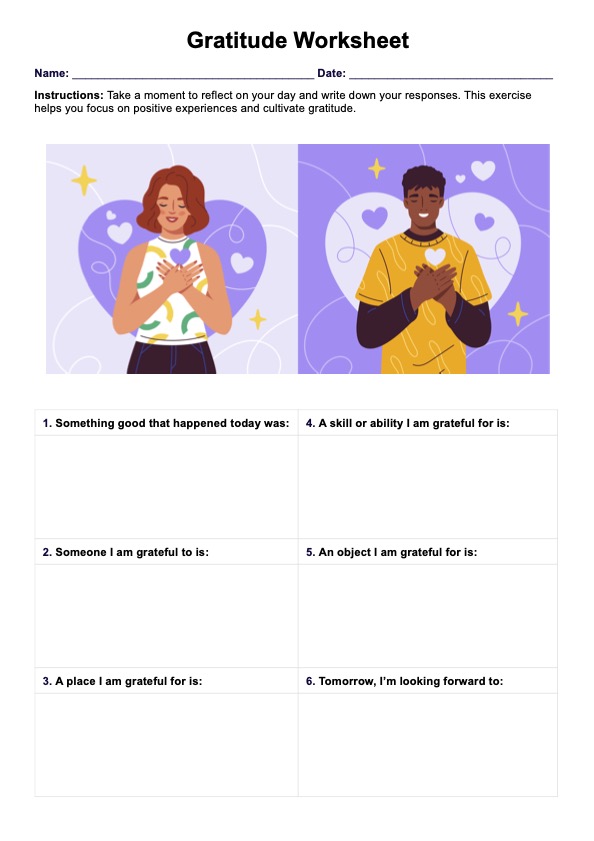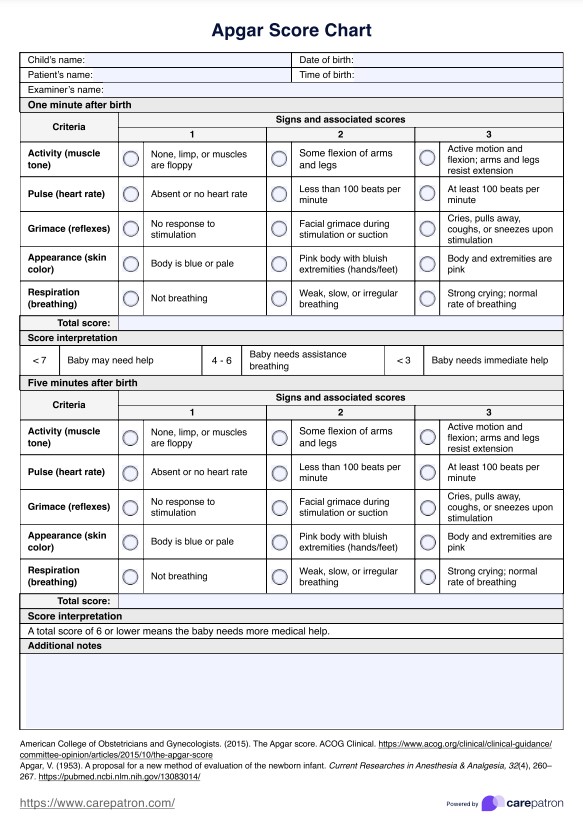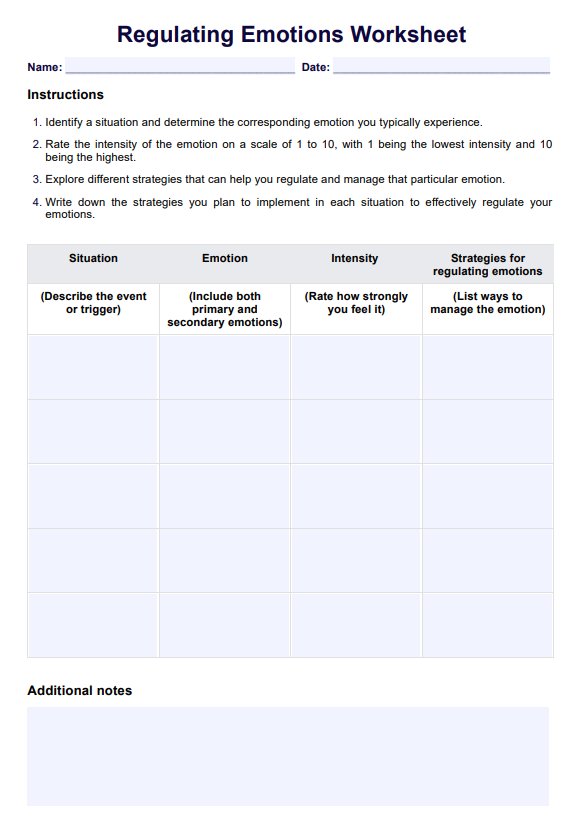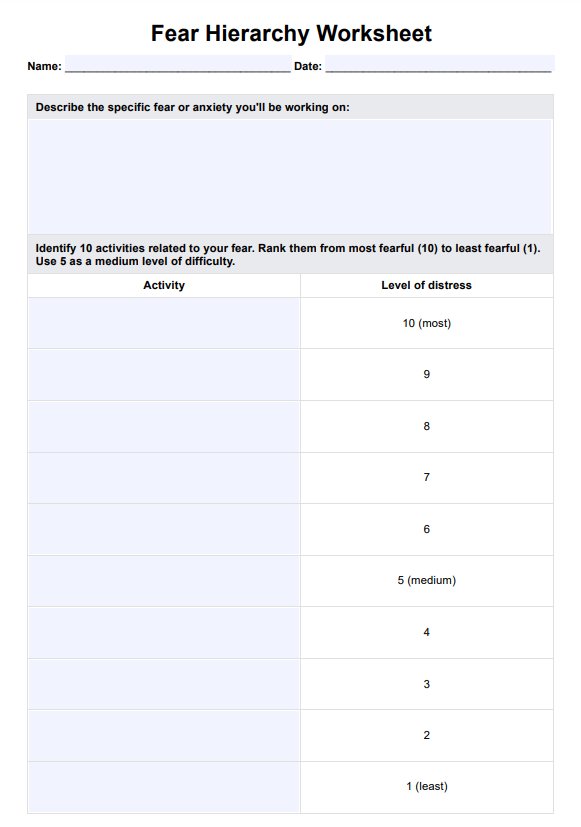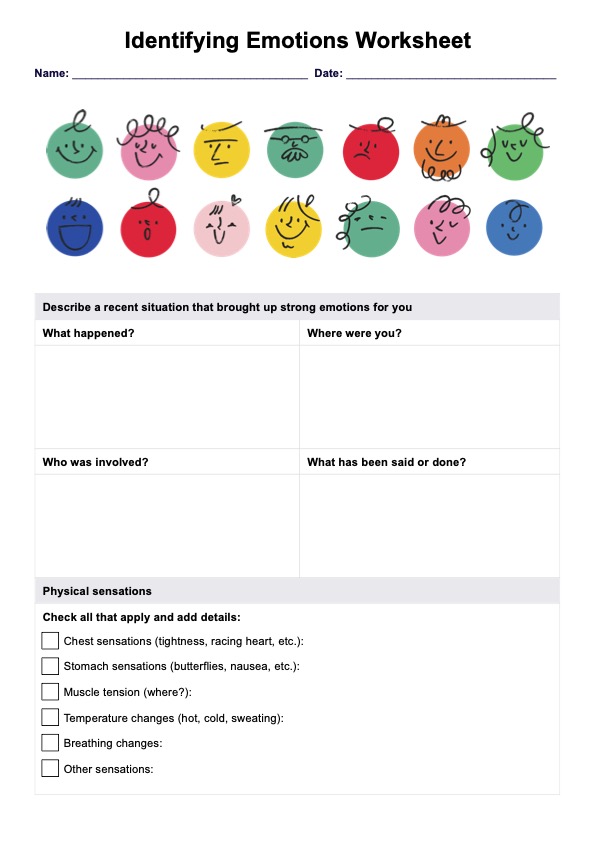Child and Adolescent Trauma Screen (CATS) - Caregiver Report (Ages 3-6 years)
Discover the Child and Adolescent Trauma Screen (CATS) - Caregiver Report (Ages 3-6 years) guide. Learn about the assessment, its application, its benefits, and more.


What is PTSD?
Post-Traumatic Stress Disorder (PTSD) is a mental health condition that may develop after exposure to a traumatic event. Trauma refers to the psychological and emotional response to an event or an experience that is deeply distressing or disturbing. Trauma can lead to developmental delays, behavioral issues, and other severe complications in children.
Children's brains are highly vulnerable to trauma, especially in the early stages of development. Trauma in children can manifest through nightmares, withdrawal from activities or people, irritability, and more. PTSD, a chronic trauma response, can impact a child's mental, emotional, and physical health.
may present differently than in adults. Young children might reenact the traumatic event through play, become particularly clingy with a caregiver, or experience developmental setbacks. Understanding PTSD in the context of child development requires a nuanced perspective, recognizing that children's responses to trauma might vary significantly from those of adults.
Assessment tools like the Child and Adolescent Trauma Screen (CATS) are crucial in recognizing and addressing PTSD in young children, providing the essential insights needed to guide appropriate care and support.
Child and Adolescent Trauma Screen (CATS) - Caregiver Report (Ages 3-6 years) Template
Child and Adolescent Trauma Screen (CATS) - Caregiver Report (Ages 3-6 years) Example
How to use this version of the Child and Adolescent Trauma Screen (CATS):
The Child and Adolescent Trauma Screen (CATS) - Caregiver Report (Ages 3-6 years) is a specialized tool for assessing trauma symptoms in young children. Here's a more detailed guide on how to use it:
Step 1: Preparation
Explain the process to the caregiver and obtain the necessary consent. Provide a comfortable environment for the caregiver to complete the questionnaire.
Step 2: Administration
The caregiver completes the questionnaire, offering insights into observed behaviors and symptoms. Professional guidance may be provided if needed.
Step 3: Scoring
Scores are calculated according to the provided instructions, resulting in a quantitative measure of trauma symptoms. Different scores may indicate varying severity levels.
Step 4: Interpretation
Trained healthcare professionals interpret the findings, considering other clinical information, history, and observed behavior of the child.
Step 5: Action
The results may lead to further assessment, specialized therapy, or ongoing monitoring, depending on the child's needs and the severity of the symptoms.
When would you use this CATS Screen - Caregiver Report (Ages 3-6)?
The CATS Screen-Caregiver Report (Ages 3-6) is an indispensable tool in assessing young children who might have experienced trauma. Applying this assessment goes beyond merely identifying symptoms; it is essential for understanding the child's mental well-being and facilitating necessary interventions.
Here are the specific scenarios when it would be most appropriate to use this assessment:
Following a Known Traumatic Event
If the child has witnessed or experienced a traumatic incident, such as an accident, abuse, or loss of a loved one, the CATS Screen provides valuable insights into how the child has been affected.
Observable Symptoms of Trauma
When a child displays behavioral changes, nightmares, withdrawal from activities, or irritability that suggest underlying trauma, this assessment can help identify the root cause.
Regular Mental Health Check-ups
Healthcare professionals, such as therapists, psychologists, and counselors, may use the CATS Screen as part of a routine mental health evaluation, ensuring that subtle signs of trauma are not overlooked.
What are the benefits of using this CATS Screen-Caregiver Report (Ages 3-6)?
Utilizing the CATS Screen-Caregiver Report (Ages 3-6) for child and adolescent trauma assessment offers several advantages that contribute to a well-rounded understanding and treatment approach. The benefits include:
1. Early Identification
Recognizing trauma symptoms early can prevent long-term mental health issues and guide immediate therapeutic intervention.
2. Comprehensive Insight
This assessment offers a multifaceted view of the child's behavior, emotions, and coping mechanisms by gathering information from caregivers.
3. Guides Treatment
Based on the findings, healthcare professionals can tailor a treatment plan specifically aligned with the child's unique needs, optimizing recovery.
4. Involves Caregiver
The involvement of caregivers not only adds to the accuracy of the assessment but also fosters collaboration in the child's therapy journey.
5. Evidence-Based
Rooted in scientific research, the CATS Screen ensures reliability and validity in trauma evaluation.
6. Accessibility
As a tool that various healthcare professionals can administer, it offers wide accessibility, ensuring that children in different settings can benefit from this essential evaluation.
These expanded benefits underline the importance of the CATS Screen in child trauma evaluation and its integral role in mental healthcare.
Commonly asked questions
Interpretation should be performed by trained healthcare professionals, considering the overall context of the child's situation.
It is used when there is a concern about trauma symptoms or after known exposure to a traumatic event.
If they are adequately trained, healthcare professionals such as therapists, psychologists, counselors, and even teachers or pediatricians may use this assessment.


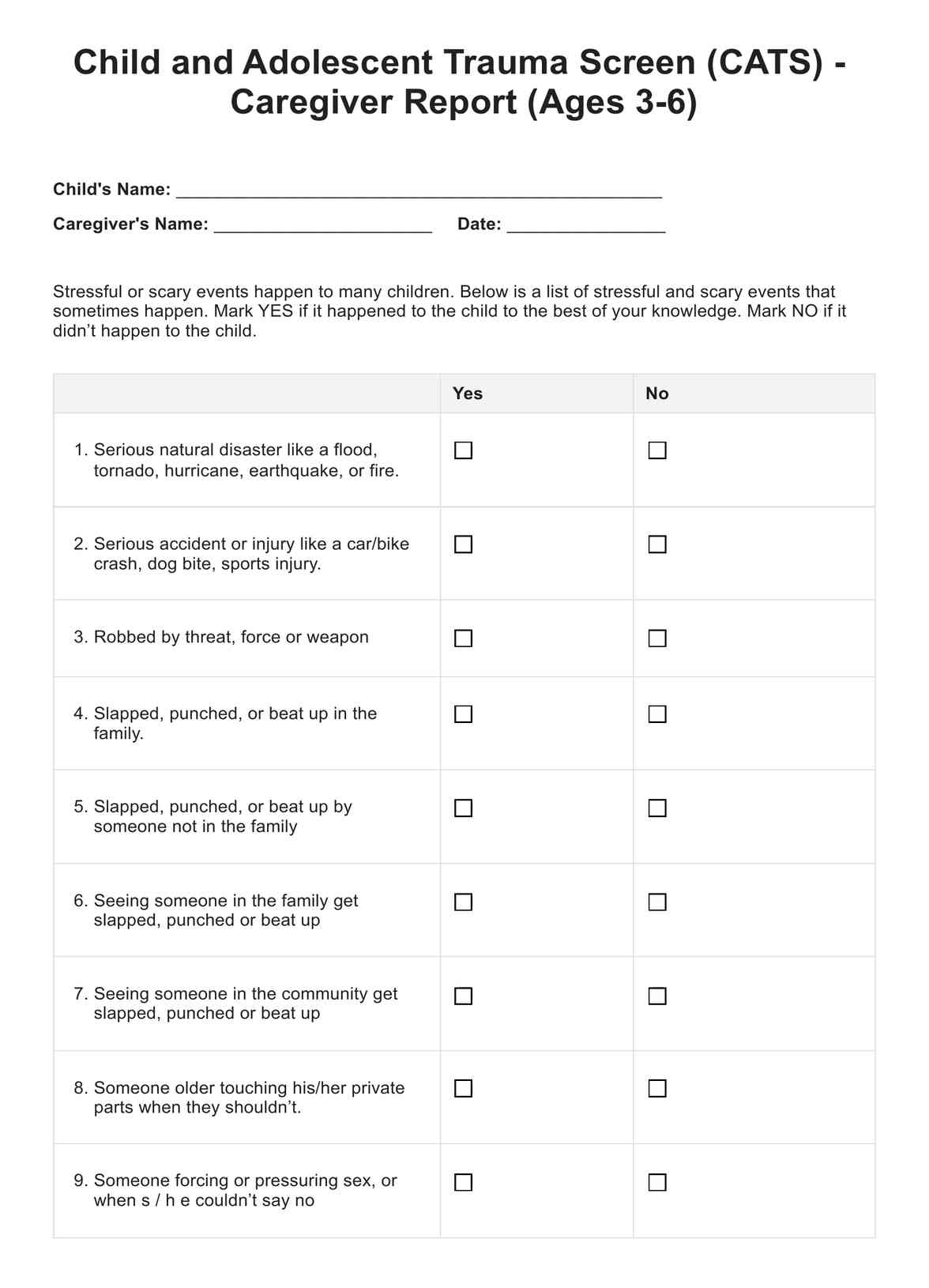
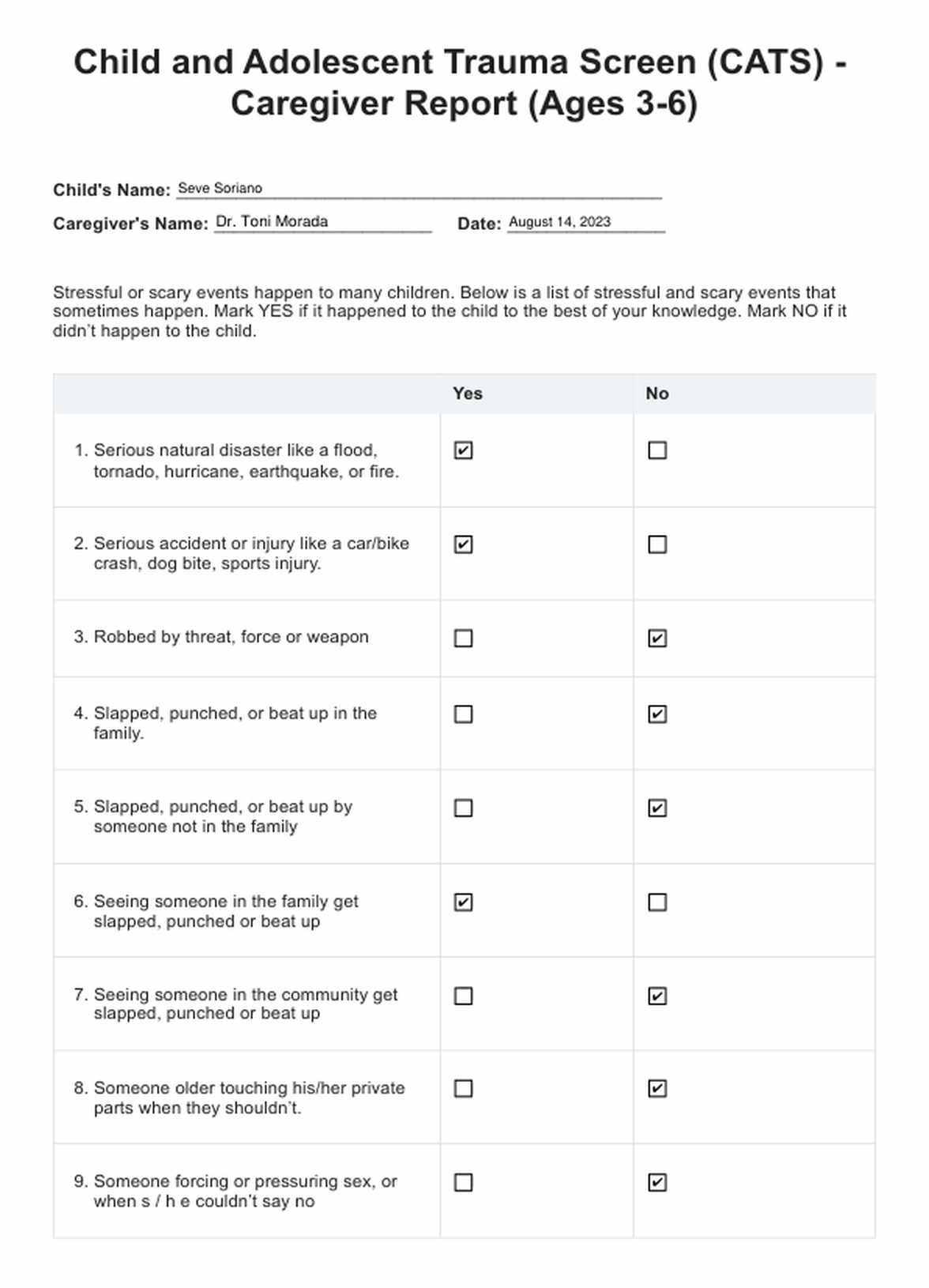

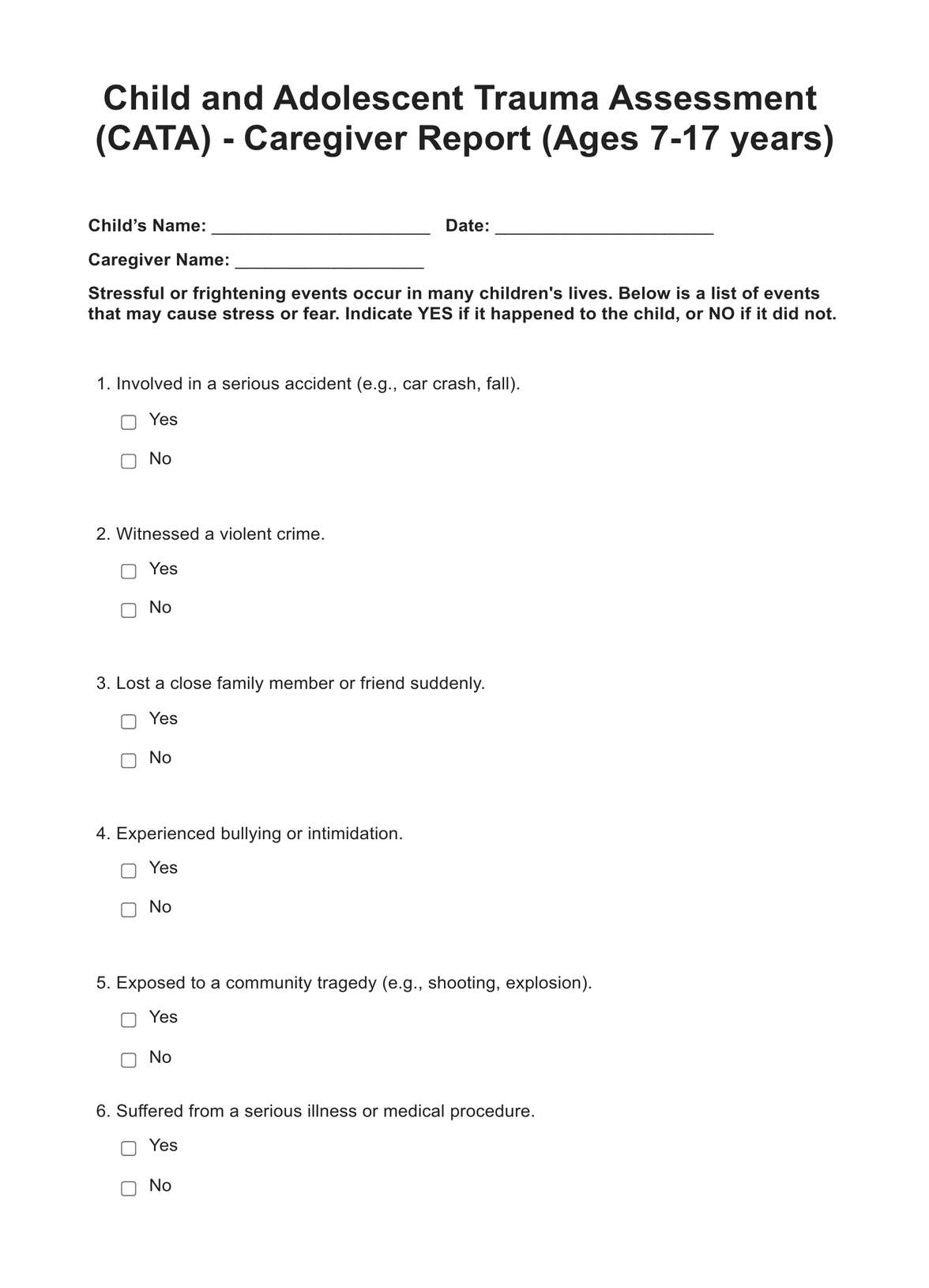













-template.jpg)

























